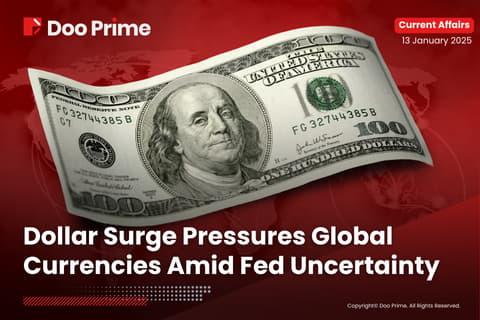Today’s News

Image Source: South China Morning Post
On Thursday, the World Bank announced a groundbreaking initiative to empower member countries affected by natural disasters and other crises. The institution has approved enhancements to its Crisis Preparedness and Response Toolkit, enabling nations to promptly tap into emergency funds, accessing up to 10% of undisbursed funds from existing project loans or facilities. This move is aimed at addressing the challenges posed by an increasingly crisis-prone world.
World Bank Managing Director for Operations, Anna Bjerde, emphasized the significance of these measures, stating that countries facing financial unpreparedness during crises are forced to make challenging trade-offs. Under the new initiative, a country with, for instance, USD 3 billion undisbursed from a USD 5 billion loan portfolio could instantly access USD 300 million in the event of a hurricane, earthquake, or pandemic—providing crucial liquidity to alleviate hardship.
“We hear client after client, from very low-income to middle-income countries, say, ‘When a crisis hits, we’re unprepared financially and we’re having to make all kinds of terrible trade-offs that we don’t want to have to make.’”
Additionally, the World Bank plans to expand access to larger pre-arranged emergency crisis financing in future loan programs. These programs will necessitate crisis-preparedness reforms and institutional measures to enhance resilience against unforeseen challenges. The executive board of the World Bank has also approved a broader initiative to increase the use of catastrophe insurance products, including catastrophe bonds, which offer insurance payouts in the face of large-scale disasters.
Jamaica has been at the forefront of utilizing catastrophe bonds, and World Bank President Ajay Banga advocates for their wider adoption to safeguard vulnerable countries’ budgets from climate and other threats. This initiative also involves using funds from project loans protected by catastrophe bonds to cover fees for arranging their issuance, relieving the financial burden on the issuing countries.
These changes align with the World Bank’s broader reform efforts to extend its mission in addressing global crises, particularly focusing on climate change. The institution aims to significantly increase its lending capacity as part of these reforms. Bjerde highlighted that these changes are a response to the needs expressed by client countries, contributing to the operational improvement efforts to create a “better bank.”
Bjerde highlighted another pivotal aspect of the operational changes, emphasizing the need to expedite the World Bank’s loan approval and disbursement processes. Currently, the institution, with its vast workforce of over 16,000 staff, takes an average of 27 months from the initiation of a project to the first loan disbursement, with 19 months dedicated to the approval phase.
Acknowledging the imperative to enhance efficiency, Bjerde outlined plans to reduce the approval time to “a few months” by the end of the current fiscal year on June 30. However, she aspires to trim the approval time to just 12 months by the end of June 2025. This target encompasses even the most intricate projects, such as large hydroelectric dams.
Bjerde stressed that “And then I want to speed up the disbursements, because if you’re not disbursing, you’re not really implementing”.
Other News
Global Fallout From Commercial Property Losses
Commercial property losses strike global banks; New York Community Bancorp and Aozora Bank shares plummet, Julius Baer CEO resigns over a USD 700 million provision tied to Austrian property loans.
GLG Brand Retired in Credit Market Focus
Man Group, the world’s largest hedge fund, led by new CEO Robyn Grew, is retiring the iconic GLG brand and merging teams to focus on credit markets. This strategic shift follows the acquisition of Varagon and aims to streamline operations in the discretionary investing division.
Romance Scams Surge by Over 20% in 2023
Romance scams increased by over 20% in 2023, as fraudsters exploit victims seeking love through fake social media profiles. Lloyds Bank reports a 22% rise, with emotional and financial tolls affecting victims aged 55 to 64. Women, on average, lose more money than men.



